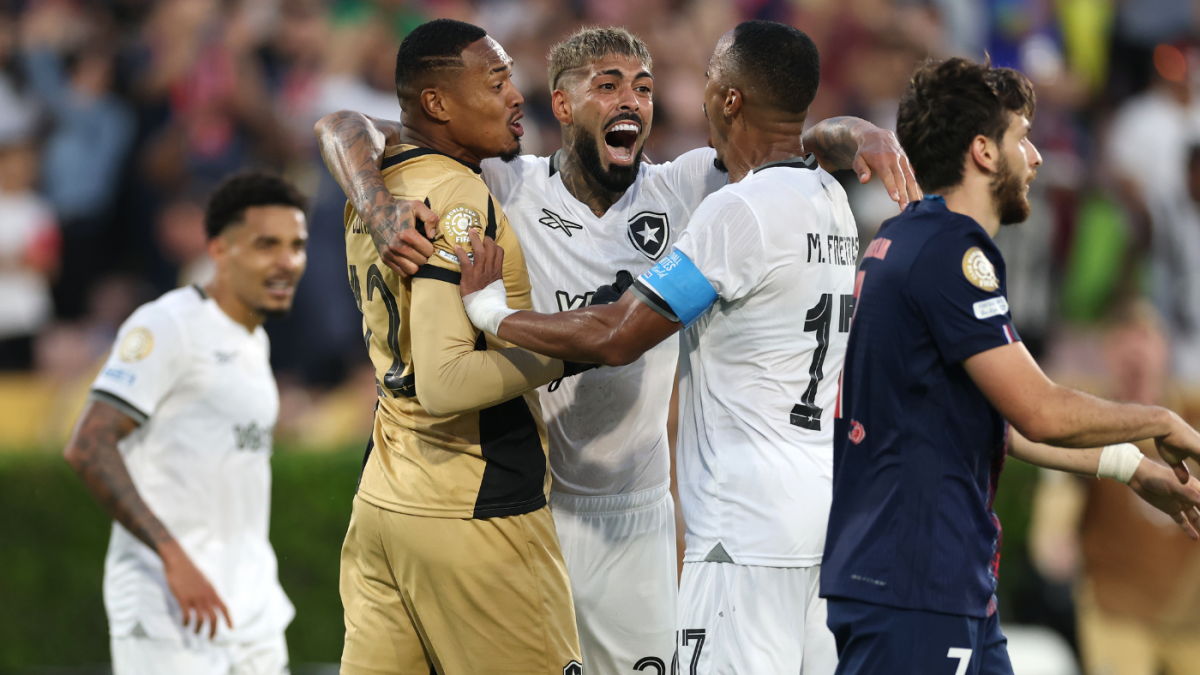A New Dawn in Global Football
The 2025 FIFA Club World Cup has unfolded in a manner that few anticipated, with the most striking development being the unexpected defeat of European powerhouses. This tournament, with its expanded format, is rapidly transforming into a stage where the established order is being challenged, and the global football landscape is evolving.
Botafogo’s Historic Upset
The Rose Bowl in Pasadena witnessed an astonishing clash between Paris Saint-Germain (PSG) and Botafogo. PSG, riding high on their recent Champions League and Coupe de France victories, were expected to dominate. However, Botafogo, the reigning Copa Libertadores champions, had other plans. The match turned on its head in the 36th minute when Igor Jesus scored the decisive goal. Botafogo’s victory was not just about luck; it was a display of tactical discipline and resilience. Despite PSG’s dominance in possession and shots, Botafogo’s efficiency and clinical finishing were the key factors in their 1-0 victory. This win was a continuation of their impressive form, having earlier defeated Atlético Madrid 4-0, securing the top spot in Group B.
European Giants Stumble
Botafogo’s triumph over PSG was not an isolated incident. The tournament has seen several European giants falter, raising questions about their traditional dominance. PSG’s earlier draw against Monterrey hinted at their vulnerability, and this trend has continued with other European teams underperforming. The narrative of European invincibility is being challenged, making the competition more unpredictable and engaging. This shift is not just about individual matches but about the broader perception of European football’s supremacy.
South American Football on the Rise
Botafogo’s success is part of a larger trend of South American football’s resurgence. The Copa Libertadores champions showcased a blend of tactical sophistication and physical intensity that caught PSG off guard. This victory is seen as a moment where South American clubs are demanding the respect they deserve, dismantling the perception of European superiority. Palmeiras, another Brazilian club, has also been a consistent force, winning the Copa Libertadores twice since 2020. This trend suggests that South American football is not just competing but leading in certain aspects of the game.
North American Clubs Make Their Mark
Adding to the complexity of the tournament’s narrative is the success of North American clubs. Inter Miami achieved a historic 2-1 victory over Porto, becoming the first MLS team to win a game in the Club World Cup. This result, along with Botafogo’s triumph, indicates a potential shift in the global football landscape, with North American clubs beginning to assert themselves on the international stage. The win for Inter Miami has been described as ending thirteen years of European dominance in intercontinental club football, marking a significant moment in the sport’s history.
PSG’s Transition and Challenges
PSG’s loss to Botafogo, while disappointing, must be viewed in the context of their current situation. The team is undergoing a coaching transition, and several key players are dealing with injuries. Luis Enrique, the PSG manager, acknowledged the intensity and difficulty of the competition, stating that every team is highly motivated, especially when facing his squad. Despite the loss, Enrique emphasized that PSG is a young team with a point to prove, focusing on long-term development rather than immediate results. Their earlier win against Atlético Madrid demonstrates their potential, but consistency remains a key challenge.
The New Club World Cup Format
The 2025 Club World Cup represents a significant departure from its previous iterations. The expanded format, featuring more teams from across the globe, aims to create a more inclusive and competitive tournament. This new structure is designed to break the historical dominance of European clubs and provide a platform for teams from other continents to showcase their talent. The early results suggest that this goal is being realized, with clubs from Brazil and the United States making a significant impact. The tournament is no longer simply a formality for European champions; it’s a genuine battle for global supremacy.
A More Competitive Future
The early stages of the 2025 FIFA Club World Cup have delivered a compelling narrative of disruption and change. Botafogo’s stunning victory over PSG, coupled with the successes of Inter Miami and the overall struggles of European teams, suggests that the global balance of power in football is shifting. The tournament is proving to be a platform where traditional hierarchies are being challenged, and the competition is more unpredictable and exciting than ever before.
The results are forcing a re-evaluation of perceptions about the relative strengths of different leagues and continents. The expanded format, designed to promote inclusivity and competitiveness, appears to be achieving its intended effect. As the tournament progresses, it will be fascinating to observe whether this trend continues and whether the 2025 Club World Cup marks the beginning of a new era in global football. The tournament is no longer about confirming European dominance; it’s about discovering who truly reigns supreme on the world stage.
A New Era in Global Football
The 2025 FIFA Club World Cup is more than just a tournament; it is a reflection of the changing dynamics in global football. The unexpected victories and the struggles of traditional powerhouses indicate that the sport is evolving, and the balance of power is shifting. As we look ahead, it is clear that the future of football will be more competitive, inclusive, and exciting. The world is watching, and the stage is set for a new era in global football.

